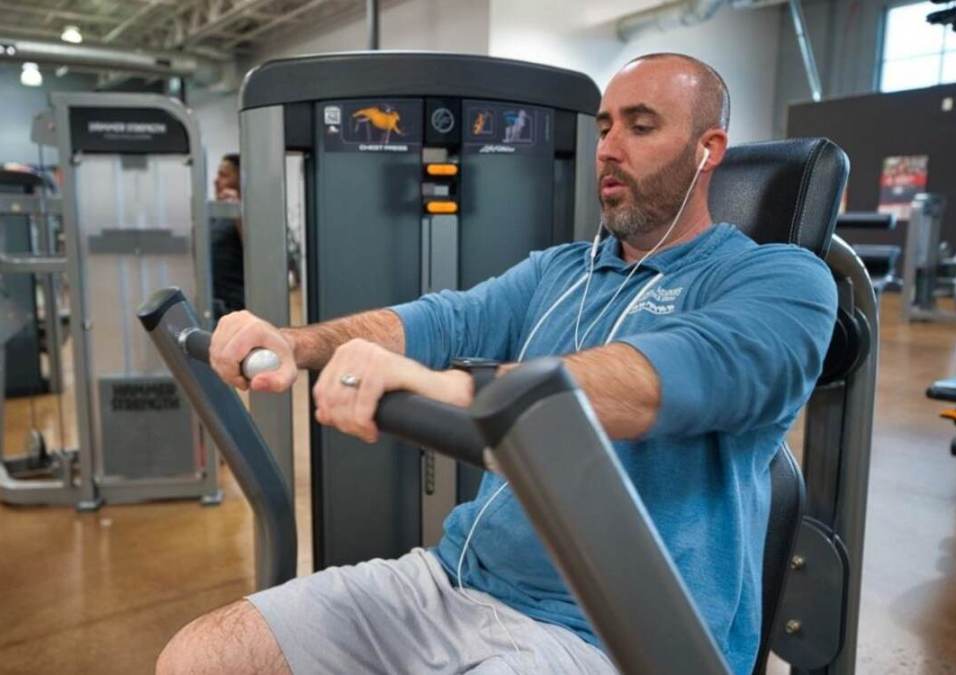Weekend Workouts Provide Benefits

SIGN UP FOR YOUR FREE DAY PASS TODAY!
Finding it tough to squeeze workouts into your jam-packed schedule? You're in good company.
Recent studies indicate that "weekend warriors"—those who manage to fit 150 minutes of exercise into one or two days—enjoy health benefits comparable to individuals who spread their workouts across the week.
Both groups experienced lowered risks for over 260 diseases, such as diabetes, hypertension, and various mental health issues, according to the research.
"Physical activity is known to impact the risk of numerous diseases," explains Shaan Khurshid, the study's co-senior author and a cardiac electrophysiologist at Massachusetts General Hospital.
"We illustrate the potential advantages of weekend warrior exercises not just for cardiovascular diseases, as previously established, but also for a range of future conditions, from chronic kidney disease to mood disorders and beyond."
Another study revealed that engaging in weekend workouts could decrease the risk of cognitive issues, including dementia, Parkinson’s disease, stroke, and depressive disorders.
The Health Benefits of Weekend Workouts
An inactive lifestyle dramatically increases the likelihood of developing ailments such as cardiovascular disease, type 2 diabetes, stroke, cancer, depression, and anxiety.
According to the U.S. Department of Health and Human Services, around half of Americans suffer from chronic diseases that regular physical activity could help prevent.
However, the Centers for Disease Control and Prevention (CDC) reports that roughly 25% of Americans aren't active enough to safeguard their health.
Only half meet federal exercise guidelines, which recommend at least 150 minutes of moderate-to-vigorous activity per week (or five to six sessions of 20 to 30 minutes) or at least 75 minutes of vigorous activity weekly.
In this recent study, researchers analyzed the data of nearly 90,000 participants, categorizing them as regular exercisers, weekend warriors, or inactive.
With an average age of 62, 56% of the participants were women who wore wrist accelerometers to track their physical activity throughout the week.
The results showed that both regular exercisers and weekend warriors had lower risks of over 260 diseases over six years compared to those who didn't exercise.
The biggest protective benefits were observed for type 2 diabetes, with a 43% lower risk for weekend warriors and a 46% lower risk for regular exercisers.
“The benefits appear to be similar for weekend warriors and regular exercisers, indicating that the total volume of activity may be more important than the pattern,” Khurshid noted.
These findings likely apply to a broad audience, says Jim Liu, a clinical associate professor of internal medicine at Ohio State University Wexner Medical Center.
"It's beneficial because many of us probably fall into the weekend warrior category," Liu says. "Personally, I do. After work, there are other responsibilities.
I've got small kids and can't just announce, 'I'm going to exercise for half an hour.'"
The Compendium of Physical Activities measures exercise intensity in METs, or metabolic equivalents.
Moderate exercise ranges from 3.0 to 5.9 METs and includes activities like walking and yard work, while high-intensity exercise measures 6.0 METs or higher, such as running or ballroom dancing.
This research adds to earlier studies affirming that any physical activity is beneficial and offers people some flexibility, says Sara K. Rosenkranz, an exercise physiologist at the University of Nevada Las Vegas.
If you can’t consistently engage in moderate-to-vigorous activity during the week but have time on weekends, it's perfectly fine to do something enjoyable, like biking or hiking.
"The key is that it doesn’t take much," Rosenkranz says. "Even short bursts of moderate-to-vigorous exercise will yield benefits."
Exercising just once or twice a week also reduces the risk of mood disorders, another significant advantage.
"We hear a lot about mental health challenges, and evidence shows that any physical activity, especially outdoor activity if possible, greatly benefits mood," Rosenkranz adds.
Considerations for Weekend Workouts
While exercising once or twice a week offers health benefits, it's crucial to assess your current health status first.
Liu mentions hearing stories about weekend warriors injuring themselves by suddenly engaging in high-intensity activities.
Research shows that people with insufficient activity levels are more prone to musculoskeletal injuries if they pack all their exercise into one or two days, Rosenkranz states.
“Just be cautious,” Liu advises. “Ensure you do pre-exercise stretching and warmups. Try to incorporate low-intensity exercises during the week to keep your body conditioned, reducing injury risk during high-intensity weekend workouts.”
For individuals with conditions like prediabetes or diabetes, regular physical activity throughout the week is recommended to help manage glucose levels, Rosenkranz says. Consistent moderate exercise also reduces blood pressure and dementia risk.
Ultimately, while being a weekend warrior has its benefits, those who spread their physical activity across the week might gain more from their efforts.
“They’ll get consistent benefits in terms of mood, energy, and overall well-being, enabling them to do even more,” Rosenkranz concludes. “If you're active over five days a week, keep it up.”
Source: nationalgeographic
The opinions shared in the GymNation blog articles are solely those of the respective authors and may not represent the perspectives of GymNation or any member of the GymNation team.
GET YOUR FREE TRIAL TODAY














































































